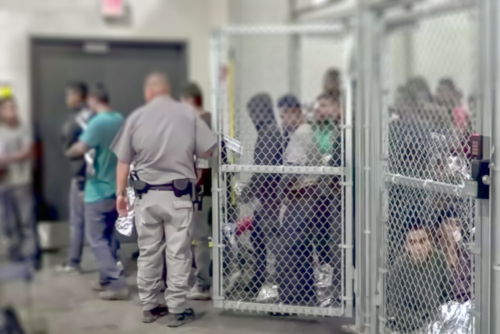As the tech industry champions the contributions of skilled immigrants, Congress now faces a rigorous debate amid technological impacts and political discord. Influential tech figures, like Elon Musk, challenge traditional GOP views that favor rigid immigration policies. The impending transition to President-elect Donald Trump adds to these complexities, posing questions about how this gathering of powerful voices will influence national immigration reform.
Social Media Clash Highlights Tensions
A social media conflict on Christmas Day underscored growing tensions between Trump supporters in Silicon Valley and grassroots MAGA constituents concerning high-skilled immigration. This online debate has brought to light the impending battle over immigration policy for the incoming administration and Congress. Influential tech leaders like Elon Musk and other industry billionaires are exerting their influence on GOP members to support the influx of skilled immigrants crucial for technological competitiveness, setting up a dynamic policy battleground.
Discussions have already begun on Capitol Hill regarding potential increases in high-tech immigrants. Proposals championed by Republican lawmakers, notably influenced by tech industry leaders, seek to bolster high-skilled immigration. However, resistance remains from immigration hard-liners within the party, complicating efforts to implement changes favorable to tech advocates.
Musk influence sparks fresh talk in Congress on high-skilled immigrants https://t.co/b5uozDIsfw via @politico
— Amb Antonio Garza (@aogarza) December 29, 2024
Musk’s Influence and Political Dynamics
With figures like Elon Musk and David Sacks defending tech leaders such as Sriram Krishnan, their advocacy emphasizes the importance of skilled immigrants in maintaining America’s technological edge. Despite this support, immigration hard-liners express concerns, particularly over moves to remove green card caps for skilled workers. American lawmakers face a significant challenge in balancing these corporate interests with a faction determined to maintain stringent immigration controls.
Some GOP figures are open to reforms, including allowing foreign STEM graduates to stay in the United States. This ideological shift signals potential fissures within the Republican Party, suggesting a possible realignment as debates on this issue advance. Senators such as Todd Young advocate a balanced approach, marrying border security with opportunities for skilled immigrants.
Elon Musk has been advocating for increased legal immigration of high-skilled engineers, specifically the top 0.1%, to enhance U.S. tech competitiveness. This stance has sparked division within the GOP, with some supporting the idea for economic benefits, while others, including… https://t.co/Two3p336ya
— MASBUNG (@xxxaryadi) December 27, 2024
Prospects for Reform and Partisan Challenges
Although there exists a historical tension and past bipartisan efforts on high-tech immigration reform, the landscape today presents a fresh urgency. Tech companies are leveraging the immense influence of billionaires to push for expanded H-1B visas and green cards. However, despite potential sway over key Republican lawmakers, entrenched political opposition from the MAGA base poses significant hurdles, casting doubt on the swift achievement of tech-friendly reforms.
Success remains uncertain. With anti-immigrant sentiment prevalent within Trump’s base, lawmakers tread cautiously to avoid alienating core supporters. As the debate proceeds, tech leaders and government officials remain vigilant, recognizing the strategic importance of balancing national interests with critical industry needs, potentially reshaping America’s approach to high-skilled immigration.
Sources:
Musk, Ramaswamy defend Silicon Valley’s foreign-born hires
MAGA vs. Musk: Immigration Fight Cracks Populist-Tech Bro Alliance – WSJ

